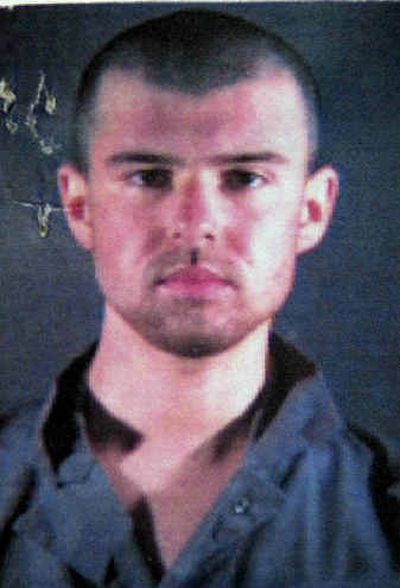Bush asked to commute Lindh’s term

Attorneys for John Walker Lindh, the suburban Californian convicted of fighting for the Taliban in Afghanistan, asked President Bush Tuesday to commute Lindh’s 20-year prison sentence.
The lawyers cited what they called disparities in the treatment of Lindh and Yaser Esam Hamdi, a U.S. citizen who the government says also fought for the Taliban after the Sept. 11, 2001, terrorist attacks. While Lindh pleaded guilty and is serving his sentence at a California prison, the government last week agreed to release Hamdi from custody and fly him to Saudi Arabia.
“Mr. Hamdi was comparable in many ways to John Walker Lindh, and that’s what causes us to believe it is basically unfair to have Lindh serve the remainder of his sentence,” James Brosnahan, an attorney for Lindh, said at a Tuesday news conference in San Francisco. “People need to understand that Lindh is an American, he has family here and he never fought against America.”
Lindh’s mother, Marilyn Walker, added, “I hope America can find it in her heart to forgive John.”
Legal experts said it is highly unlikely that Bush, who has made the war on terrorism the centerpiece of his re-election campaign, would agree to reduce Lindh’s sentence. Under the Constitution, only the president can issue pardons or commutations.
“Not a chance,” said Chris Schroeder, who ran the White House Office of Legal Counsel for two years during the Clinton administration. “Putting aside the perhaps crass political reasons,” Schroeder said, “Lindh’s prosecution was so recent that folks who made the decisions to go ahead and eventually settle the case are still part of the Department of Justice, and they will make their views known.”
White House spokeswoman Claire Buchan would say only that all clemency petitions are reviewed by the Justice Department, which makes recommendations to the president.
Federal prosecutors in the Washington suburb of Alexandria, Va., would not comment on Lindh’s commutation petition, which was filed Tuesday and does not specify how many years Lindh wants taken off his sentence.
The debate refocused attention on a case that aroused passions nationwide. Lindh converted to Islam as a teen-ager in Marin County, Calif., and studied Arabic in Yemen and Pakistan before venturing to Afghanistan. Prosecutors say he fought for the Taliban before and after Sept. 11 until his unit surrendered to Northern Alliance forces in November 2001.
Lindh initially faced charges that could have sent him to prison for life, including conspiring to kill Americans abroad. He pleaded guilty in July 2002 in U.S. District Court in Alexandria to one count of providing services to the Taliban and one count of carrying explosives during a felony.
At his sentencing, Lindh, then 21, tearfully apologized and said he never supported terrorism or fought against Americans. Tuesday, his attorney recalled the emotion surrounding Lindh’s case, which he said was especially heated because it was prosecuted in Northern Virginia, near the Pentagon, and so close to Sept. 11.
“There comes a time after the heat of war when people begin to look more fairly at a situation,” said Brosnahan, who called on Bush to show “compassion” for Lindh.